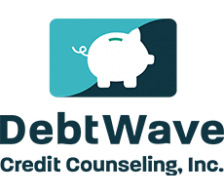For the last decade, social media has increasingly become a way to learn tips and tricks from professionals in various industries, including personal finance.
Although some financial advice on social media has created an opportunity for more people to learn healthier ways to manage, save, spend and invest their money, not all free advice is created equally. It’s important to understand that not all financial advice posted for free on the Internet is accurate or designed for you and your financial situation.
While some personal finance social media accounts post helpful budgeting or debt payoff tips that help their followers, others are regurgitating information that’s harmful to your financial future.
So how do you distinguish which financial advice on social media is helpful and which advice will possibly force you to take a second job?
5 Bad Financial Takes from Social Media
1. Increase Your Credit Score with Credit Card Debt
The Bad Take: “My boss proudly explained to me that she carries a credit card balance and pays interest on it to increase her credit score,” said Martin Lassen, founder and CEO of GrammarHow. “She received this recommendation from her mortgage broker. It was suggested that she keep the balance between 40 percent and 50 percent of her credit limit. It’s the worst financial advice I have ever received.”
The Truth: Your credit score is a significant part of your overall financial health, and your credit score does not require debt, especially credit card debt, to improve.
Recommending consumers carry a credit card debt balance from month to month is not only harmful, but there could be severe financial repercussions for those who follow this misinformed advice once you consider that a credit score is used not only to determine your credit card interest rate, but it’s considered when someone is applying for a line of credit for a mortgage, auto loan, or credit card.
Not to mention, potential landlords and employers often look at applicants’ credit scores to determine who they’ll trust with property or a job. And that a big reason many people fall deep into credit card debt is not just because they’ve charged more on the card than they can afford to pay off; Sometimes, we fall deeper into debt because of the interest that accrues on our outstanding debt.
In truth, your credit score is determined by five main criteria:
- Payment history (35 percent)
- Credit Utilization (30 percent)
- Length of credit history (15 percent)
- Types of credit (10 percent)
- New credit (10 percent)
If you’re carrying a monthly balance on your credit card, you are affecting your credit utilization ratio, which makes up 30 percent of your total credit score.
Lenders like to see you can handle your credit responsibly. Owing money on a credit card account doesn’t necessarily mean you’re a high-risk borrower. But, if you consistently use a significant percentage of the credit available to you, it can imply to lenders that you are overextended and may miss payments in the future.
A good rule is not to utilize more than 30 to 40 percent of your credit limit. For example, if you have a $10,000 limit on your credit card, make sure not to have more than $3,000 to $4,000 worth of charges on the card at any given time.
2. Have a Financial Advisor? You’ll Never Have to Worry About Money Again!
Financial advisors are human. Financial planners are human. Financial coaches are human.
Anyone recommending you outsource and entrust your financial future to someone else has not read our blog on financial lessons from the sitcom “Schitt’s Creek.”
For those of you who have managed to avoid all pop culture references to the hit sitcom, let me give you a brief synopsis of the show.
“Schitt’s Creek” is a tale about a wealthy family who loses millions of dollars overnight thanks to a shady business manager who neglected to pay taxes from the family’s business. After the government takes pretty much everything from the family, essentially leaving them homeless with the clothes on their back, the Rose family’s matriarch and patriarch (played by Catherine O’Hara and Eugene Levy, Dan’s father), along with their two adult children (played by Annie Murphy and Dan Levy), are now forced to live out of a rundown motel in a small town the family purchased years prior as a joke. A town named Schitt’s Creek.
While it’s perfectly acceptable to get help with your money management – especially if you struggle in this area, you still want to keep close tabs on your money and know what incomes, expenses, taxes, debt, and insurance you have.
“Relying solely on financial advisors is one of the worst things you can do when planning your finances,” said Mike Walsh, CEO of Cloud My Biz. “I’ve seen many people suffering from huge losses and bad finances just because they blindly trusted their financial advisors. You must have at least a basic knowledge of your finances, how they must be invested, and the current trends.”
3. Worry About Retirement Later
The Bad Take: “When I was young, one of my friends advised me to stop worrying about retirement. He said I would have plenty of time to think about it later,” said James Crawford, co-founder of Deal Drop.
The Truth: The earlier you start saving for retirement, the less money you’ll need to contribute to your retirement account.
If you’ve ever experienced high-interest credit card debt, you’ve experienced firsthand the power of compound interest. The same effect happens with savings accounts and retirement accounts. Our money grows over time. So the longer you wait to start contributing to your retirement, the more money you’ll need to contribute out of pocket to that account.
“It takes a long time for your money to increase,” said Crawford. “You’ll need to save less money over time if you start early.”
4. Always Avoid Debt
After paying off credit card debt, many consumers pledge to avoid debt at all costs moving forward. But in case you forgot, a mortgage, auto loan, student loan, and business loan are all forms of debt too.
The difference between a mortgage and, say, credit card debt is that one is considered a good form of debt, and the other is considered a bad debt.
“Good” debt is money owed for things that can help build wealth or increase income over time, such as student loans, mortgages, or business loans; “bad” debt refers to things like credit cards or other consumer debt that do little to improve your financial outcome.
“I believe that you should be as debt-free as possible, but we need to understand that not all debts are bad,” said Dustin Ray, chief growth officer at Incfile. “If a debt’s interest rate is less than the returns you’re generating, you end up benefitting from that debt.”
“Avoid taking debt for buying stuff that depreciates over time,” said Ray. “Instead, invest that debt to generate a good return like your business, stocks, real estate, etc., which will appreciate with time.”
5. Only Way to Have More Money? Make More Money
How many times have you thought to yourself, if I only earned x amount more money, all of my financial problems would be solved?
Unfortunately, most of the time, earning more money doesn’t translate into less debt, often thanks to a little phenomenon called lifestyle inflation. In other words, if you’re struggling to manage a little bit of money, those money issues won’t suddenly go away because you’re earning more.
“Your savings rate will determine your financial success, not your income,” said Cecil Staton of Arch Financial Planning, LLC. “The higher your savings rate, the more likely you are to achieve higher levels of wealth relative to your income.”
Looking for further proof that more money doesn’t always solve problems?
Living paycheck to paycheck is now the dominant financial lifestyle in the United States, according to a new survey from Pymnts.com and LendingClub Corp, which found that roughly two-thirds, 61 percent of Americans live paycheck to paycheck.
That same survey found that 36 percent or one in three Americans who earn $250,000 a year or more reported they are currently living paycheck to paycheck.
For those high-income earners living paycheck to paycheck, half reported having little money left over once their expenses were paid; 10-12 percent reported struggling to pay their bills at the end of the month.
“Earning a quarter of a million dollars a year is more than 5x the national median and is clearly high income. The fact that a third of them are living paycheck to paycheck should surprise you,” said Anuj Nayar, LendingClub’s Financial Health Officer.
Final Thoughts
If you’re looking for some financial support, contact DebtWave Credit Counseling, Inc. for a free one-on-one session with a certified credit counselor. Even if our debt management program isn’t right for you, you’ll at least have a better idea of where your money is going and a better understanding of how you can improve your financial situation in the future.


